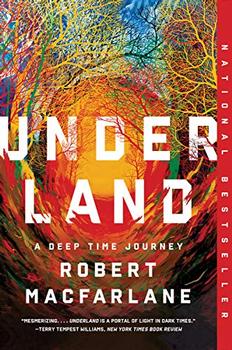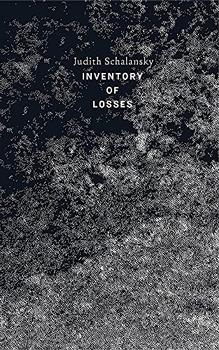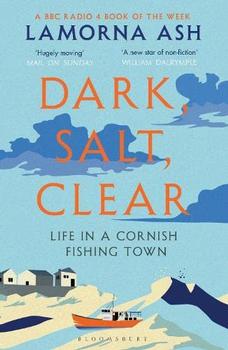Summary | Excerpt | Reviews | Beyond the book | Read-Alikes | Genres & Themes | Author Bio

A Deep Time Journey
by Robert MacfarlaneI first became familiar with nature writer Robert Macfarlane, funnily enough, via his Twitter account (@RobGMacfarlane), which he frequently uses to elucidate uncommon or vanishing words, most of them geographically related. I've long been interested in the names for natural features and places, so I was hooked (and if you're like me, you will want to seek out Macfarlane's large format picture book, The Lost Words, about common nature words that are disappearing from children's vocabulary). Macfarlane's writing is equally engaging when extended over far more than 280 characters, however, and in volumes like The Old Ways
and Mountains of the Mind he blends memoir with lyrical travel writing, history and science to bring readers a far deeper and more profound understanding of the world in which we live and the relationship humans have with it..
In Macfarlane's latest work of narrative nonfiction, Underland, he brings readers with him deep underground, to landscapes as varied as an underground river in Italy, the catacombs of Paris, and the precious (and vanishing) glaciers of Greenland. Along the way, he explores humans' fascination with these hidden, remote, and often dangerous places, and the ways we use underground places to "shelter (memories, precious matter, messages, fragile lives), yield (information, wealth, metaphors, miracles, visions), and dispose (waste, trauma, poison, secrets)." As he puts it, "into the underland we have long placed that which we fear and wish to lose, and that which we love and wish to save." From the remains of our loved ones to the remnants of our most volatile experiments in mining and energy, the earth beneath us holds human secrets—and secrets that humans have yet to uncover.
Readers who have claustrophobic tendencies might want to read Underland in a wide-open field or in a bright room with all the windows open. Macfarlane describes openings so tight that cave explorers have to take off their backpacks and pull them through after they traverse the passage, labyrinthine tunnels that require Ariadne's thread to navigate (See Beyond The Book). His careful pacing and immersive storytelling truly brings readers with him into these confining spaces.
But Macfarlane's narrative is actually most compelling when he steps back from individual cave passages and uses his considerable breadth of knowledge to make sometimes surprising connections through history, mythology and science, such as when he draws a direct line between multi-chambered Egyptian Canopic burial practices and the disposal of spent nuclear reactors, which are similarly contained. Particularly as the narrative heads north to Greenland and an investigation of what lies beneath arctic ice (and what is being released as it melts at an increasingly alarming rate), Macfarlane also utilizes his narrative to cast a foreboding eye on our changing landscape and the increasingly dire future for the planet during the Anthropocene epoch.
Readers will want to have a pen and a dictionary handy while reading. Unsurprisingly for someone who clearly loves language, Macfarlane infuses his narrative with rich and often surprising words, including the many different terms native Greenlanders use for different types of ice. He also, soberingly, returns repeatedly to terms like "species loneliness" or the recently coined term "solastalgia," which refers to a type of homesickness experienced when we stay in the same place, but the world around our home becomes alien to us. Underland paints humanity as both inextricably linked to the world we inhabit (including those places and creatures we can't even see) and also being unwilling to acknowledge or embrace that interconnectedness, instead furthering our own species to the detriment of every other—and, in the end, to our own detriment as well.
This last paragraph might make it seem like Underland is a bleak and hopeless book—and in fact, it would be a rare reader who could walk away from it without feeling genuine alarm about the state of our planet and its future—but it is also suffused with moments of hope and beauty, as Macfarlane profiles people who champion earth's remotest regions and, as he lyrically describes, the wonders that can be found everywhere on Earth—not only at its highest summits but also in its most mysterious and unknowable depths.
![]() This review was originally published in The BookBrowse Review in June 2019, and has been updated for the
September 2020 edition.
Click here to go to this issue.
This review was originally published in The BookBrowse Review in June 2019, and has been updated for the
September 2020 edition.
Click here to go to this issue.

If you liked Underland, try these:

by Judith Schalansky
Published 2021
Each disparate object described in this book - a Caspar David Friedrich painting, a species of tiger, a villa in Rome, a Greek love poem, an island in the Pacific - shares a common fate: it no longer exists, except as the dead end of a paper trail.

by Lamorna Ash
Published 2021
From an adventurous and discerning new voice reminiscent of Robert Macfarlane, a captivating portrait of a community eking out its living in a coastal landscape as stark and storied as it is beautiful.
Your guide toexceptional books
BookBrowse seeks out and recommends the best in contemporary fiction and nonfiction—books that not only engage and entertain but also deepen our understanding of ourselves and the world around us.